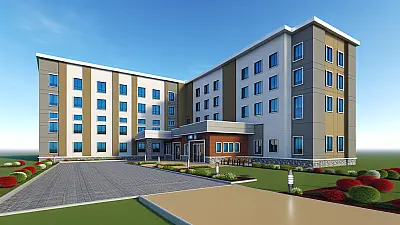EBENSBURG, PA - Federal inspectors found that Cambria Care Center's quality assurance program repeatedly failed to implement effective solutions to ongoing safety and nursing service deficiencies, resulting in continued regulatory violations throughout 2024.

Quality Assurance System Breakdown
During a January 30, 2025 inspection, surveyors discovered that Cambria Care Center's Quality Assurance and Performance Improvement (QAPI) committee was unable to successfully implement their corrective action plan designed to ensure compliance with federal regulations governing professional nursing services. This represents a fundamental failure in the facility's oversight mechanisms, which are required by federal law to continuously monitor and improve care quality.
The QAPI committee serves as the central hub for identifying problems, developing solutions, and ensuring ongoing compliance with health and safety standards. When this system fails, it creates a cascade effect that can compromise multiple aspects of resident care and safety.
Pattern of Recurring Safety Deficiencies
The inspection revealed a troubling pattern where the facility developed corrective action plans following previous violations but failed to sustain compliance over time. Specifically, inspectors found that plans of correction for deficiencies related to maintaining a safe environment free of accident hazards, which were cited during surveys ending February 14 and August 1, 2024, were inadequately implemented.
The facility's correction plans included conducting regular audits and reporting audit results to the QAPI committee for review. However, the continued presence of these violations during the 2025 inspection demonstrates that these measures were insufficient to prevent recurring problems.
Medical Significance of Quality Assurance Failures
Effective quality assurance programs are critical in nursing homes because they serve as the primary mechanism for preventing medical errors, reducing infection rates, and maintaining safety standards. When QAPI systems fail, residents face increased risks of falls, medication errors, and delayed responses to medical emergencies.
Professional nursing service deficiencies can manifest in various ways, including inadequate medication administration, insufficient wound care, poor pain management, or delayed recognition of changes in residents' conditions. These issues can lead to preventable hospitalizations, prolonged recovery times, and decreased quality of life for residents.
The failure to maintain a safe environment free of accident hazards is particularly concerning given that nursing home residents are typically at higher risk for falls and injuries due to age-related factors, mobility limitations, and cognitive impairments. Environmental hazards such as wet floors, inadequate lighting, or improperly maintained equipment can result in serious injuries including fractures, head trauma, and other complications that may be life-threatening for frail elderly residents.
Industry Standards and Regulatory Requirements
Federal regulations require nursing homes to establish and maintain comprehensive QAPI programs that systematically monitor all aspects of care and services. These programs must include data collection, analysis of trends, development of corrective actions, and ongoing monitoring to ensure sustained improvement.
The Centers for Medicare & Medicaid Services expects facilities to demonstrate measurable improvement in areas where deficiencies have been identified. Simply developing a plan of correction is insufficient; facilities must show through data and outcomes that their interventions are effective and sustainable.
Best practices in nursing home quality assurance include regular staff training, robust incident reporting systems, comprehensive auditing processes, and leadership accountability for outcomes. Successful QAPI programs typically involve multidisciplinary teams that include nursing staff, administrators, medical directors, and other key personnel working collaboratively to identify and address systemic issues.
Ongoing Monitoring and Compliance Challenges
The repeated nature of these violations suggests systemic issues within the facility's management structure and operational processes. Effective quality assurance requires consistent leadership commitment, adequate staffing levels, appropriate training programs, and sufficient resources to implement and maintain corrective measures.
When facilities struggle with recurring violations, it often indicates problems with staff turnover, inadequate training, insufficient oversight, or resource constraints that prevent effective implementation of improvement initiatives. These underlying issues must be addressed for any corrective action plan to succeed.
Additional Issues Identified
The inspection narrative indicates that additional deficiencies were cited during the current survey, though specific details were not provided in the available documentation. The reference to ongoing compliance failures suggests that multiple areas of the facility's operations may require immediate attention and systematic improvement.
The facility's inability to sustain compliance with previously identified deficiencies raises questions about the adequacy of their current management systems and their capacity to provide consistent, high-quality care to residents. Continued federal oversight and potentially enhanced enforcement measures may be necessary to ensure resident safety and regulatory compliance.
Full Inspection Report
The details above represent a summary of key findings. View the complete inspection report for Cambria Care Center from 2025-01-30 including all violations, facility responses, and corrective action plans.
💬 Join the Discussion
Comments are moderated. Please keep discussions respectful and relevant to nursing home care quality.